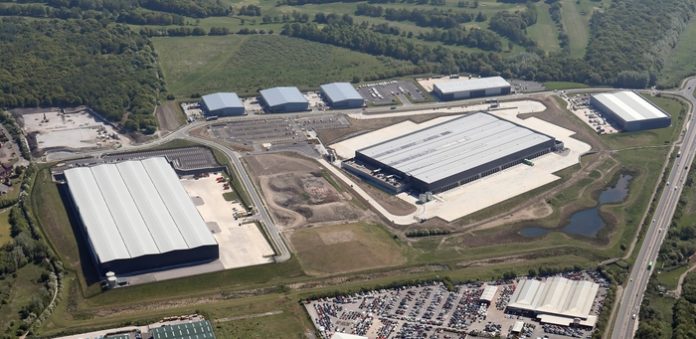The Leeds City region has attracted strong investor interest in the urban logistics market, with returns outpacing anywhere else in the UK outside London, according to a new report from global property consultancy Knight Frank.
Leeds beat off strong competition from the Amber Valley, Newcastle and Manchester to emerge as the regional urban logistics investment hotspot.
Knight Frank’s report, Industrial Future Gazing, revealed that E-commerce growth could create 12 million sq ft of last mile logistics space requirements by 2025. Research also showed that E-commerce would account for 30 per cent of retail sales by 2025, fuelling last-mile urban logistics space requirements equivalent to 16 Wembley stadiums.
Meanwhile investment into the UK industrial and logistics sector is set to hit a record £13bn this year with total returns forecast to reach 18.5 per cent compared to 9.7 per cent in 2020.
Leeds heads the highest total investment returns forecast table outside London, with 22.3 per cent, followed by Amber Valley (21.3 per cent); Newcastle (21.1 per cent) and Manchester (20.6 per cent). Wakefield comes a respectable 10th in this table, with investment returns of 19.4 per cent.
Henrie Westlake, partner and head of investment at Knight Frank in Leeds, commented: “The urban logistics market has attracted strong investor interest, particularly over the past 18-months, and Leeds is at the forefront of this interest, thanks to its superb motorway network, the availability of labour, strong rental and land value growth and lack of stock.”
He explained: “The COVID-19 pandemic has accelerated the structural shifts in the retail market with the growth of e-commerce driving investors to increase capital allocations to the sector. With consumers demanding ever-faster delivery times, and the high costs associated with the last mile of the supply chain, retailers and logistics operators are pushing to improve their distribution models, reduce inefficiencies, and hold stock closer to consumers.
“Returns for the industrial and logistics sector have surpassed those across other real estate sectors, and logistics assets in urban locations have outpaced those located further from large population centres
“It is clear that strong occupier demand to hold stock within urban areas is supporting investor sentiment. Investment into the industrial and logistics sector has already topped the full-year total for 2020, with £10.6 billion invested and with the fourth quarter still to come, investment is expected to reach record levels.
“Many institutional investors were already looking to tilt their portfolios towards the logistics sector and the COVID-19 pandemic has led them to intensify their push. Allocations to the UK industrial and logistics sector have increased from 21.0 per cent five years ago, to 36.4 per cent in the second quarter of this year.
“Those already invested in the sector are looking to increase their exposure and new entrants are looking to enter the market and this is driving competition which is, in turn, fuelling pricing. Despite strong investor sentiment for urban logistics, obtaining scale in this arena can be tricky. Urban logistics assets have relatively low lot size and development options are relatively limited,” added Mr Westlake.






















